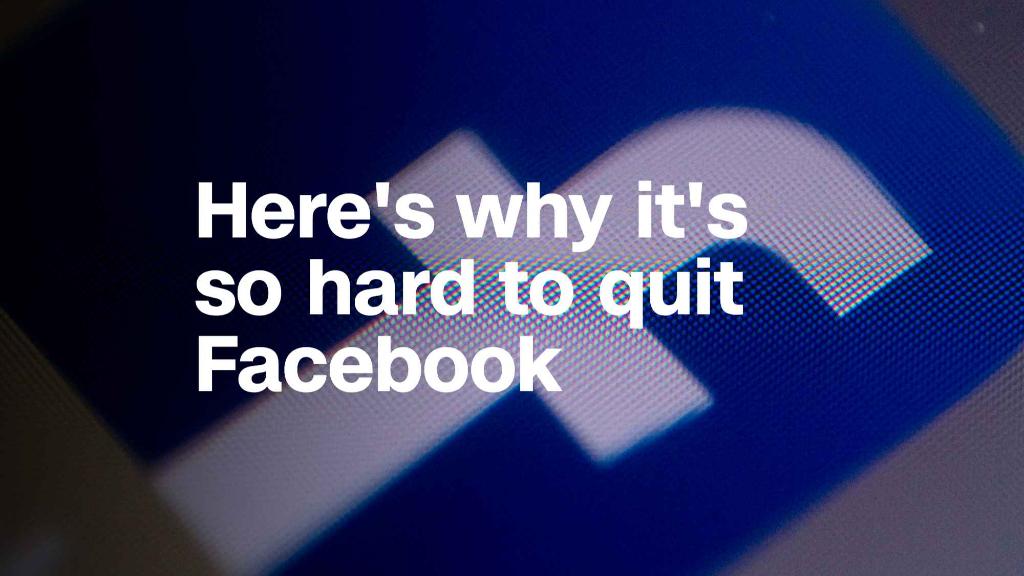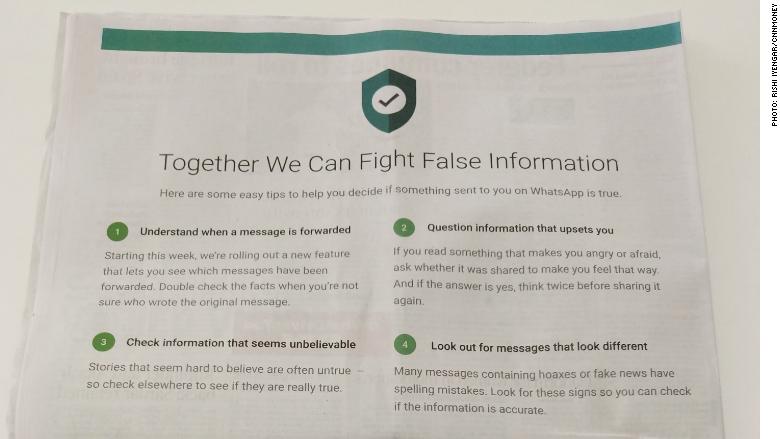
WhatsApp is using old media to tackle its misinformation problem in India.
The messaging service, owned by Facebook (FB), took out full-page ads in leading English and Hindi newspapers on Tuesday, giving readers 10 tips to spot messages that might be fake.
The ads are part of a campaign by WhatsApp in its biggest market following a spate of lynchings that have been blamed on hoaxes sent over the platform.
A spokesperson told CNNMoney that the company would translate the ads to run in local newspapers in nine Indian states, many of which speak different languages.
WhatsApp's tips include checking with other sources, looking up photos online that may be edited, and thinking twice before forwarding a message you have doubts about.
"Fake news often goes viral" reads one. "Just because a message is shared many times does not make it true."

WhatsApp, which has more than 200 million users in India, is also rolling out several new features to stop the spread of fake rumors.
One of those features — a service WhatsApp has been testing in India to label forwarded messages — was launched globally on Tuesday. It shows when a message has been forwarded rather than composed by the sender.
Related: WhatsApp fights hoax messages in India after rumors led to killings
Other big tech firms around the world are also trying to combat misinformation, including Facebook.
YouTube, the hugely popular video platform owned by Google (GOOGL), announced plans on Monday to push videos from more "authoritative" sources, particularly when it comes to news content.
Twitter (TWTR) is also taking action, with a report last week saying it suspended 70 million accounts in May.

